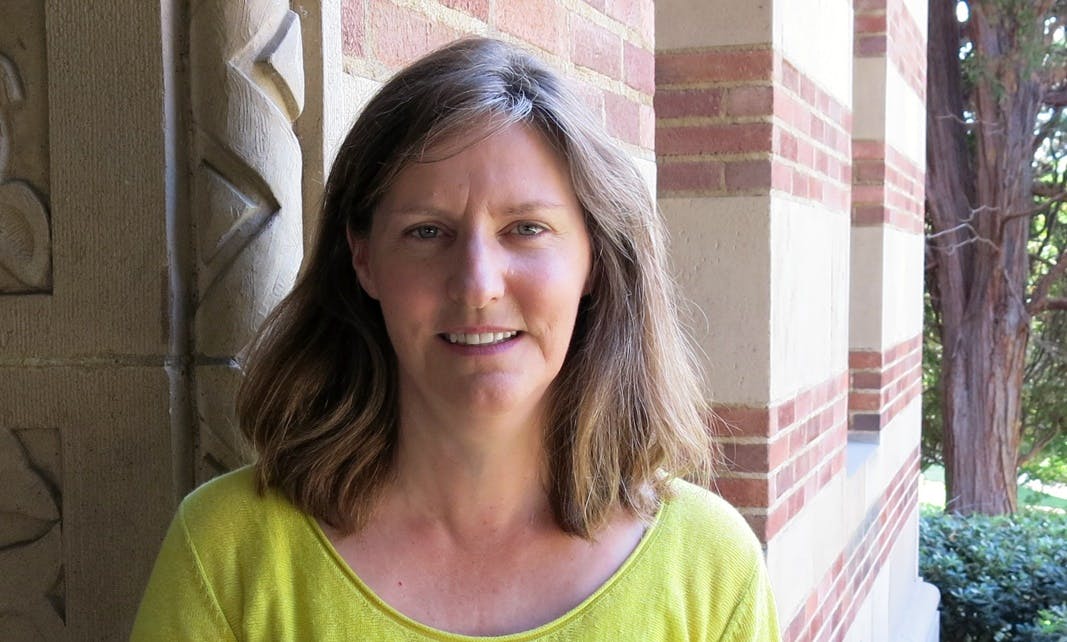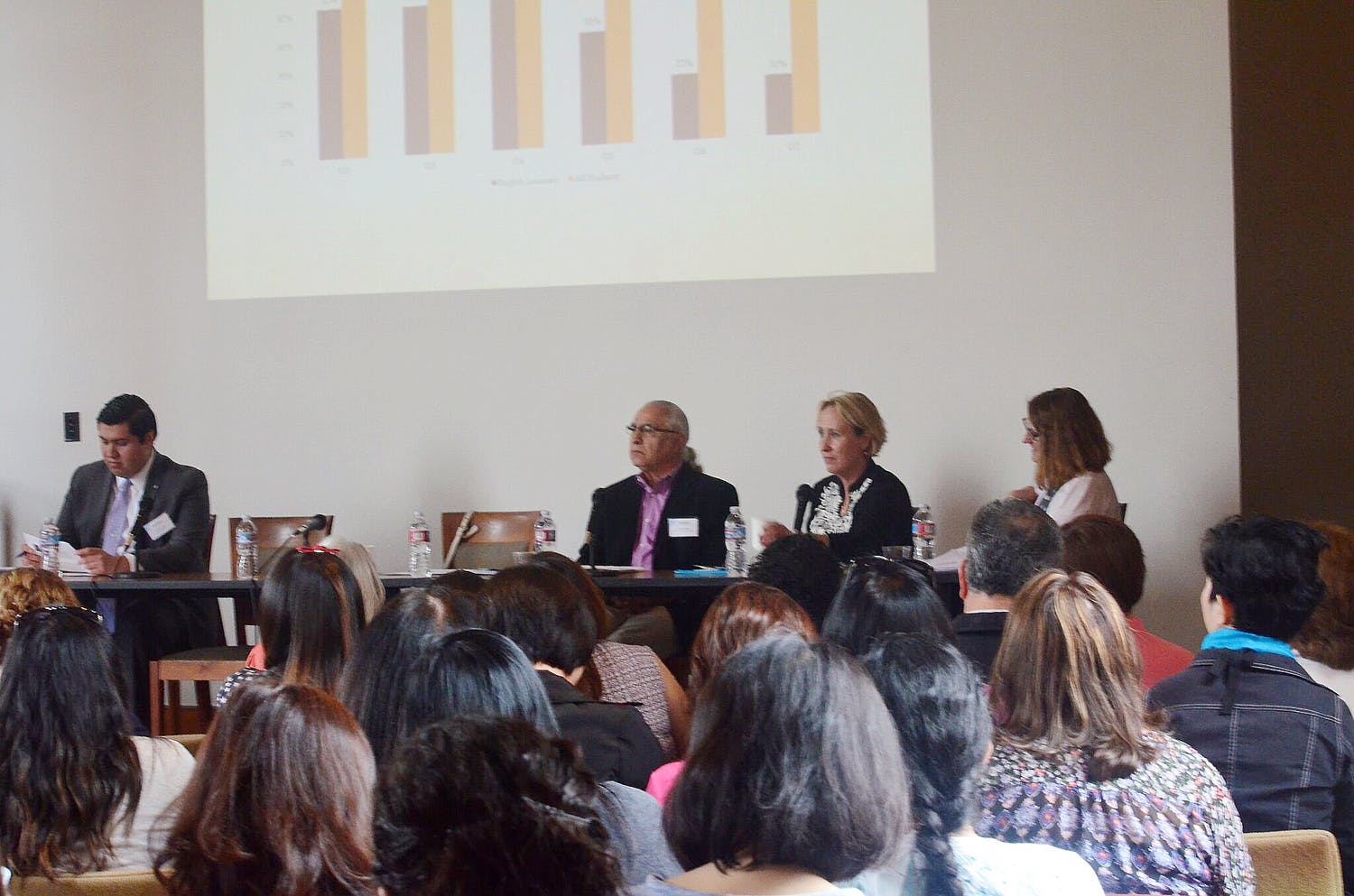UCLA Professor of Education Alison Bailey and Susan Jain, director of the Confucius Institute at UCLA, presented a conference on dual language education titled, “The Policy and Practice of Dual Immersion: Planning for the Secondary Years” on May 14 in Royce Hall. Sessions included national and local perspectives on bilingual and immersion education, creating a workforce of teachers who are qualified to work with language learners, and models of successful dual-immersion programs. The conference was co-hosted by UCLA Education and the UCLA Confucius Institute and additionally sponsored by the California Association for Bilingual Education and the California World Language Project.
Bailey, who is the co-author of the recent book “Children’s Multilingual Development and Education: Fostering Linguistic Resources in Home and School Contexts” (Cambridge University Press, 2016), says that the conference addressed some of the most pressing issues surrounding dual-immersion programs in middle and high school contexts.

“Across California and around the country, schools and districts are facing a shortage of teachers who are prepared and credentialed to teach content areas in languages other than English, and many programs are faced with the challenges of finding or creating age-appropriate curricular materials,” she says. “A clearer picture of the different strategies needed to encourage a pipeline to teaching in secondary dual-immersion programs emerged from the conference, along with the sharing of approaches to creating instructional resources.”
Approximately 150 educators, policy makers, researchers and other stakeholders in language learning from as far away as Washington D.C., Seattle, and Shanghai heard from scholars and experts as well as the first-hand experiences of current students enrolled in secondary DLI programs. Dorian Almaraz, a staff member in the office of California Senator Tony Mendoza, welcomed attendees and shared the work of the Senator on behalf of promoting bilingualism in the State. Patricia Gándara, UCLA professor of education and co-director of The Civil Rights Project/Proyecto Dereches Civiles, opened the conference with an overview of the current state of bilingual education in California titled, “The Status of California’s English Learners & Their Programs.” Amado Padilla, professor of Developmental and Psychological Sciences in Education at Stanford University, delivered the keynote address, “Secondary Level Dual Immersion: Current Status and Future Directions.”

A discussion on teacher recruitment and preparation was held by Ann Tollefson, national language consultant, Jennifer Li of the RAND Corporation, Susan Wang, principal, Broadway Elementary School in Los Angeles, and Steve Zimmer, LAUSD Board President. Gregg Roberts, a World Languages and Dual Immersion specialist with the Utah State Office of Education, James Orihuela, Spanish language arts teacher, Long Beach Unified School District, Iman Hashem, program director of the Occidental College World Language Project, and Brandon Zaslow of the California World Language Project, discussed successful secondary dual-immersion program models and existing resources for schools.
After breakout sessions with the attendees, a final panel considered the audiences’ feedback and presented ideas for policy makers. The panel included Jan Gustafson-Corea of the California Association for Bilingual Education, Natalie Tran, associate professor, California State University, Fullerton and director of the National Resource Center for Asian Languages, and Elena Fajardo of the California Department of Education.
Professor Bailey says that dual-immersion programs at the secondary level need to be flexible to fit into students’ busy schedules.
“A strong focus on language and culture needs to continue at the same time we need to be thinking creatively to incorporate target partner languages into the courses teenagers will really want to take, such as courses on new media and technologies,” she says. “One thing that became clear at the conference was that we need to involve teens in the design of these courses to be assured of their maximum engagement and what we hope will be their deeper content and language learning.”
Amy Woodbridge, a Ph.D. candidate in UCLA Education’s division of Human Development and Psychology, served as a graduate student researcher for the conference organizers, and assisted with identifying topics and presenters, and event logistics. Many other Education students also volunteered with welcoming conference speakers and other hosting duties for the conference.
To view a report and sessions from “The Policy and Practice of Dual Immersion: Planning for the Secondary Years,” click here.
Photo by Ma Xiaojie
